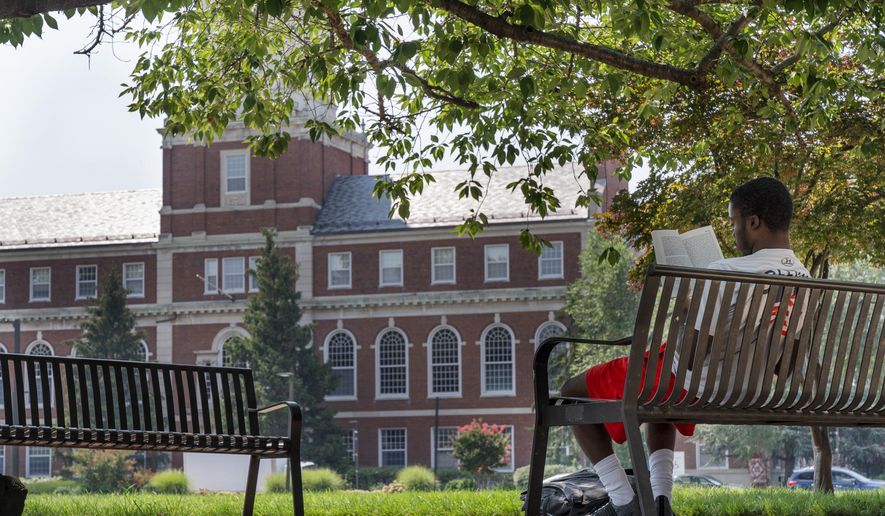Historically Black Colleges and Universities (HBCUs) are remarkably successful at supporting social mobility among their students, according to a report released Thursday by the research arm of the District-based United Negro College Fund.
Using data from Opportunity Insights, a research institute based at Harvard University, the study of social mobility outcomes showed that HBCUs help more than twice as many students rise from the bottom 40% of income earners to the top 60% category.
Among those who attend HBCUs, 34.3% move from the lower category to the upper, versus 15.8% of college graduates overall.
The Black colleges and universities also massively outperform the “Ivy Plus” cohort of elite schools, which only showed a 7.4% average mobility rate. That group of schools, the UNCF said, comprises the eight Ivy League schools as well as Stanford University, Duke University, University of Chicago, and MIT.
“The ultimate goal of a college degree is to fuel factual learning, maturity and growth and economic prosperity,” Nadrea Njoku, interim director of the UNCF’s Frederick D. Patterson Research Institute, said in a statement. “Our research shows HBCUs contribute mightily to our well-being as a nation.”
The report indicated that Howard University was among the 11 most successful HBCUs in moving students into the middle class.
District-based Howard had a success rate of 73.8 percent in seeing disadvantaged students move into the middle class, while Virginia’s Hampton University scored 76.7 percent.
The most successful HBCU in terms of upward mobility was Xavier University of Louisiana at 78.9 percent.
Leaders in the HBCU community, speaking online in a “Twitter Chat” forum sponsored by the UNCF and Diverse: Issues In Higher Education magazine, said the positive results revealed by the analysis point to a need for increased support of the 101 accredited HBCUs operating in 19 states, the District, and the U.S. Virgin Islands.
“More than 25 [historically White institutions] alone have larger endowments than all HBCUs combined,” UNCF president Michael Lomax said. “Harvard itself has an endowment of nearly $40 billion.”
By contrast, Mr. Lomax said, “according to U.S. Education Department data, the total endowments of all 101 HBCUs today is about $3.4 billion.”
“Increased philanthropic, federal & state government funding is critical to overcome negative effects of decades-long systemic discrimination,” he said.
Charlie Nelms, a senior scholar at the American Association of State Colleges and Universities, said, “Most funding metrics work to the detriment of HBCUs because not enough weight is given to institutional mission and the profile of students served.”
According to Roslyn Clark Artis, president of Benedict College in Columbia, South Carolina, HBCUs need assistance beyond boosting their endowments.
“Direct investments to HBCUs for infrastructure, technology and research are critical to our viability and competitiveness,” she said during the online panel discussion.
Ms. Artis also called for increasing Pell Grants, calling the program “the single best way to ensure broader access and equitable outcomes for students.”
More than 70% of HBCU students are eligible for the Pell Grant program, the UNCF study noted.
Ms. Artis also said the positive financial impact of HBCU education can be measured.
“The data doesn’t lie. The UNCF economic impact study validated that the 50,000 HBCU graduates in 2014 alone can expect total earnings of $130 billion over their lifetimes,” she said.
The report is available online at the United Negro College Fund website, uncf.org.
• Mark A. Kellner can be reached at mkellner@washingtontimes.com.




Please read our comment policy before commenting.